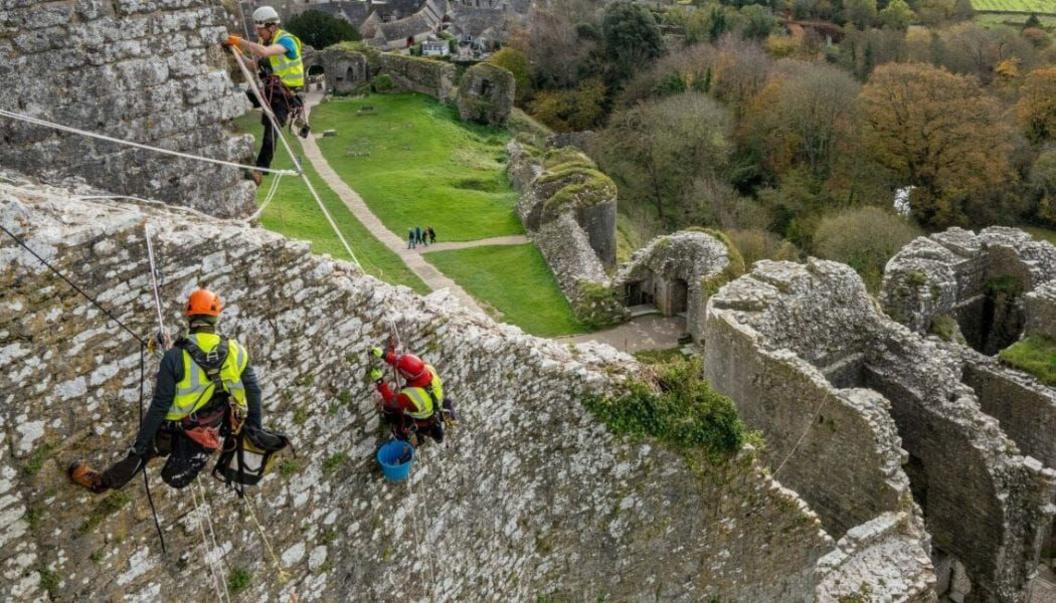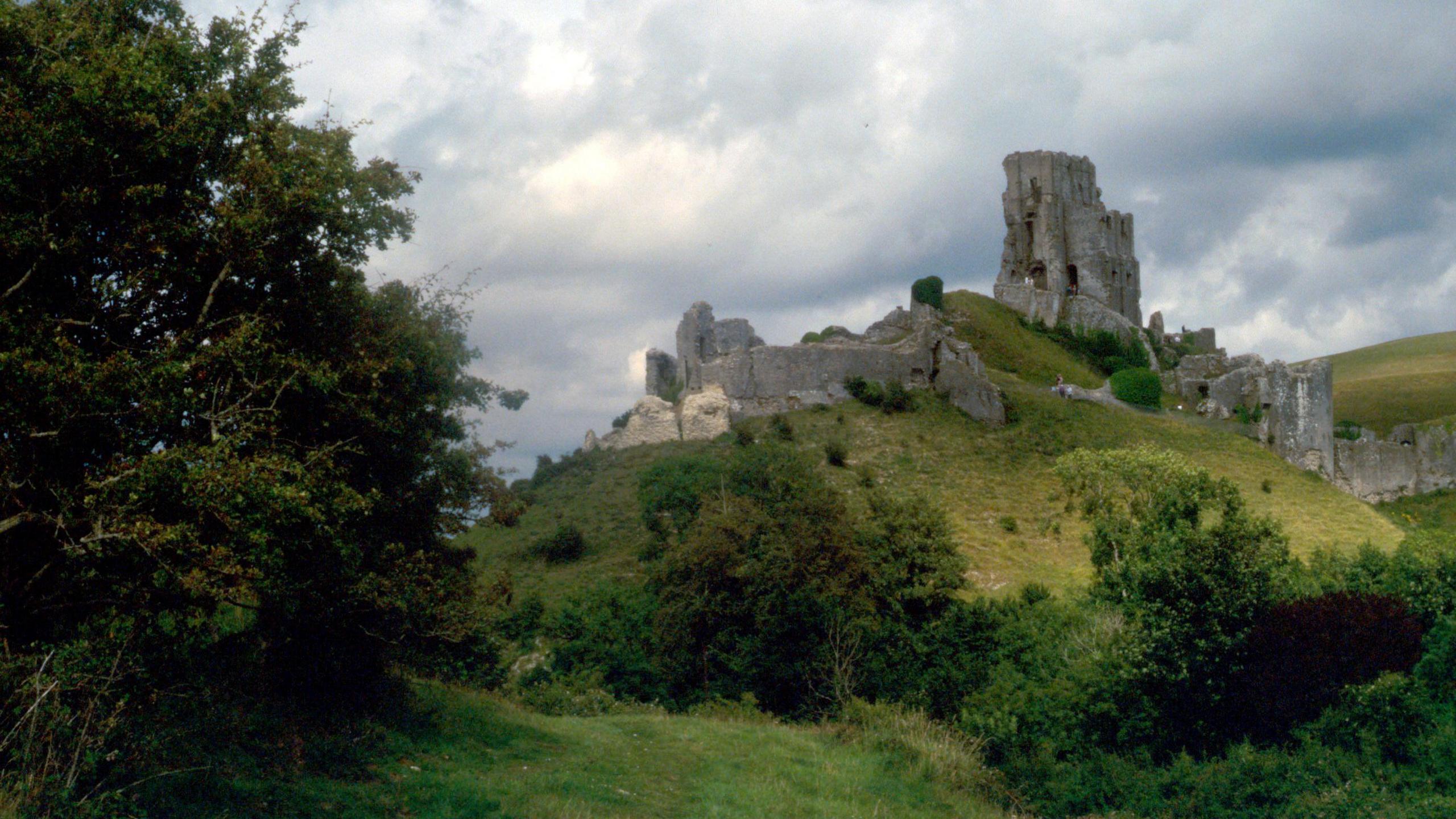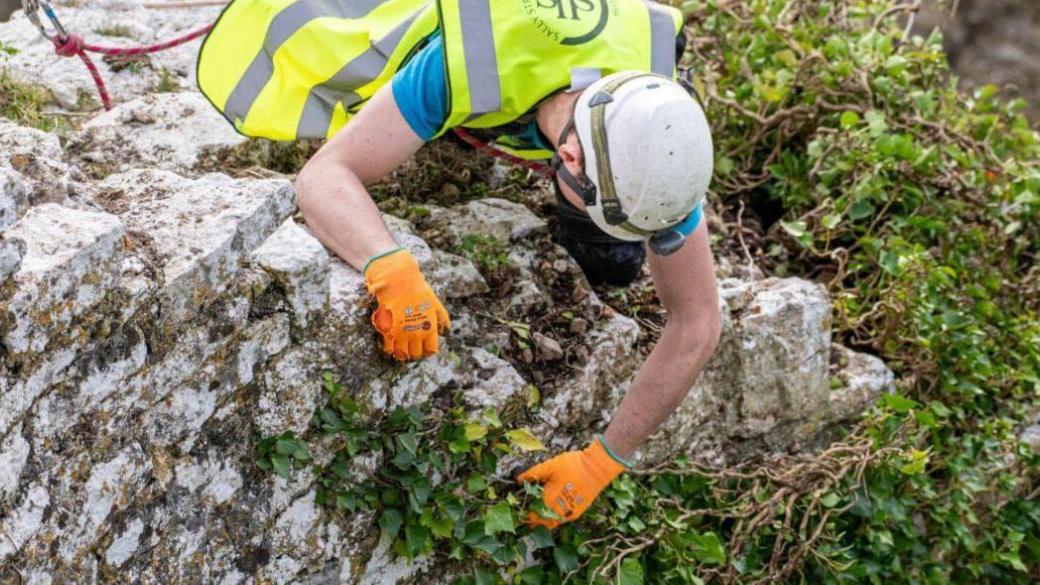Rope teams begin three-year castle restoration

Summer droughts and wetter winters have led to an increase in vegetation damage
- Published
A three-year project is under way to reverse damage at one of Britain's most iconic castle ruins.
Specialist rope access teams are removing vegetation from Corfe Castle in Dorset ahead of repairs.
The National Trust, which owns the site, said the building was "structurally stable" but there were concerns over roots growing deep in the castle's walls.
The £2m project will see the overgrown walls revealed before they are repaired with lime mortar.

Corfe Castle has been in ruins since the English Civil War
The trust said summer droughts and wetter winters had led to an increase in vegetation damage.
Project manager Christina Newnham explained: "We currently spend money every year on resetting fallen stones and other repairs, but with the vegetation removed and the walls in better condition, we can then focus that annual budget on managing vegetation growth and keeping the castle in good order, protecting it for the future."
The charity said removing vegetation would reveal parts of the walls not seen for more than 100 years.
Repairs will be made to the nine towers, the keep and the 8m-high (26ft) curtain wall.

Some parts of the castle have been hidden under vegetation for decades
As well as replacing mortar, the exposed wall tops are protected with a technique called "soft capping" which involves covering them with grass to stop too much moisture reaching the core of the wall.
National Trust builders are working with ecologists to protect wildlife at the site, including ravens and peregrine falcons that nest there.
The project is being supported with a grant of £150,000 from the Wolfson Foundation along with funds from the National Trust, which is also fundraising for the last £100,000.
Corfe Castle was built by William the Conqueror in the 11th Century on top of a steep-sided 55m-high hill and has undergone structural changes over the centuries.
It was one of the last Royalist strongholds and was besieged twice during the English Civil War before being captured and slighted.
Follow BBC South on Facebook, external, X, external, or Instagram, external. Send your story ideas to south.newsonline@bbc.co.uk, external.
Related topics
- Published25 March 2024
